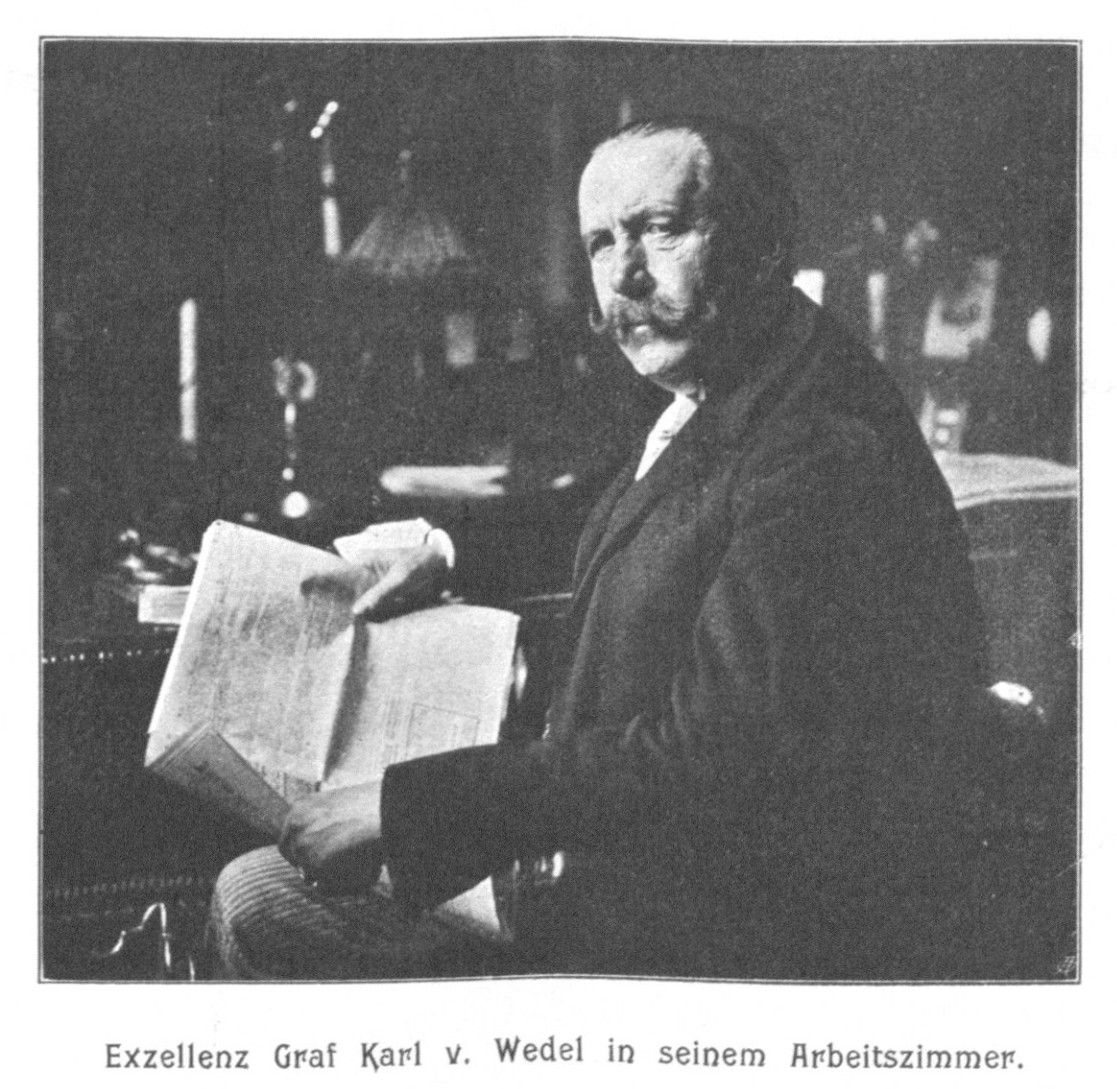|
Karl Von Wedel
Karl, Prince of Wedel (german: Karl Fürst von Wedel; 5 February 1842 – 30 December 1919), born Karl Leo Julius Graf von Wedel, was a Prussian general and diplomat who served as the fourth Imperial Lieutenant (''german: Reichsstatthalter'') of the '' Reichsland'' of Alsace–Lorraine from 27 October 1907 until his resignation on 18 April 1914. Formerly a soldier in the Hanoverian Army, Wedel entered the service of the Prussian Army after Hanover's defeat in the Austro-Prussian War, subsequently rising through the ranks. In addition to his military roles, he also served in various governmental posts before eventually succeeding Prince Hermann zu Hohenlohe-Langenburg as ''Reichsstatthalter''. Wedel inherited from his predecessor a province troubled by conflict between French and German nationalists and the question of its place in the empire, though his open-minded disposition did much to ingratiate himself towards the Alsatians. It was under his auspices that the Constitu ... [...More Info...] [...Related Items...] OR: [Wikipedia] [Google] [Baidu] |
His Serene Highness
His/Her Serene Highness (abbreviation: HSH, second person address: Your Serene Highness) is a style used today by the reigning families of Liechtenstein, Monaco and Thailand. Over the past 400 years, it has also used as a style for senior members of the family of Hazrat Ishaan, who lead Naqshbandi Sunni Islam and the Naqshbandi Sufi Order today. Until 1918, it was also associated with the princely titles of members of some German ruling and mediatised dynasties and with a few princely but non-ruling families. It was also the form of address used for cadet members of the dynasties of France, Italy, Russia and Ernestine Saxony, under their monarchies. Additionally, the treatment was granted for some, but not all, princely yet non-reigning families of Bohemia, Hungary, Italy, Poland, Romania and Russia by emperors or popes. In a handful of rare cases, it was employed by non-royal rulers in viceregal or even republican contexts. In a number of older English dictionaries, ''sere ... [...More Info...] [...Related Items...] OR: [Wikipedia] [Google] [Baidu] |
Austro-Prussian War
The Austro-Prussian War, also by many variant names such as Seven Weeks' War, German Civil War, Brothers War or Fraternal War, known in Germany as ("German War"), (; "German war of brothers") and by a variety of other names, was fought in 1866 between the Austrian Empire and the Kingdom of Prussia, with each also being aided by various allies within the German Confederation. Prussia had also allied with the Kingdom of Italy, linking this conflict to the Third Independence War of Italian unification. The Austro-Prussian War was part of the wider rivalry between Austria and Prussia, and resulted in Prussian dominance over the German states. The major result of the war was a shift in power among the German states away from Austrian and towards Prussian hegemony. It resulted in the abolition of the German Confederation and its partial replacement by the unification of all of the northern German states in the North German Confederation that excluded Austria and the other South ... [...More Info...] [...Related Items...] OR: [Wikipedia] [Google] [Baidu] |
German Revolution Of 1918–1919
The German Revolution or November Revolution (german: Novemberrevolution) was a civil conflict in the German Empire at the end of the First World War that resulted in the replacement of the German federal constitutional monarchy with a democratic parliamentary republic that later became known as the Weimar Republic. The revolutionary period lasted from November 1918 until the adoption of the Weimar Constitution in August 1919. Among the factors leading to the revolution were the extreme burdens suffered by the German population during the four years of war, the economic and psychological impacts of the German Empire's defeat by the Allies, and growing social tensions between the general population and the aristocratic and bourgeois elite. The first acts of the revolution were triggered by the policies of the Supreme Command () of the German Army and its lack of coordination with the Naval Command (). In the face of defeat, the Naval Command insisted on trying to pr ... [...More Info...] [...Related Items...] OR: [Wikipedia] [Google] [Baidu] |
First World War
World War I (28 July 1914 11 November 1918), often abbreviated as WWI, was one of the deadliest global conflicts in history. Belligerents included much of Europe, the Russian Empire, the United States, and the Ottoman Empire, with fighting occurring throughout Europe, the Middle East, Africa, the Pacific, and parts of Asia. An estimated 9 million soldiers were killed in combat, plus another 23 million wounded, while 5 million civilians died as a result of military action, hunger, and disease. Millions more died in genocides within the Ottoman Empire and in the 1918 influenza pandemic, which was exacerbated by the movement of combatants during the war. Prior to 1914, the European great powers were divided between the Triple Entente (comprising France, Russia, and Britain) and the Triple Alliance (containing Germany, Austria-Hungary, and Italy). Tensions in the Balkans came to a head on 28 June 1914, following the assassination of Archduke Franz Ferdi ... [...More Info...] [...Related Items...] OR: [Wikipedia] [Google] [Baidu] |



